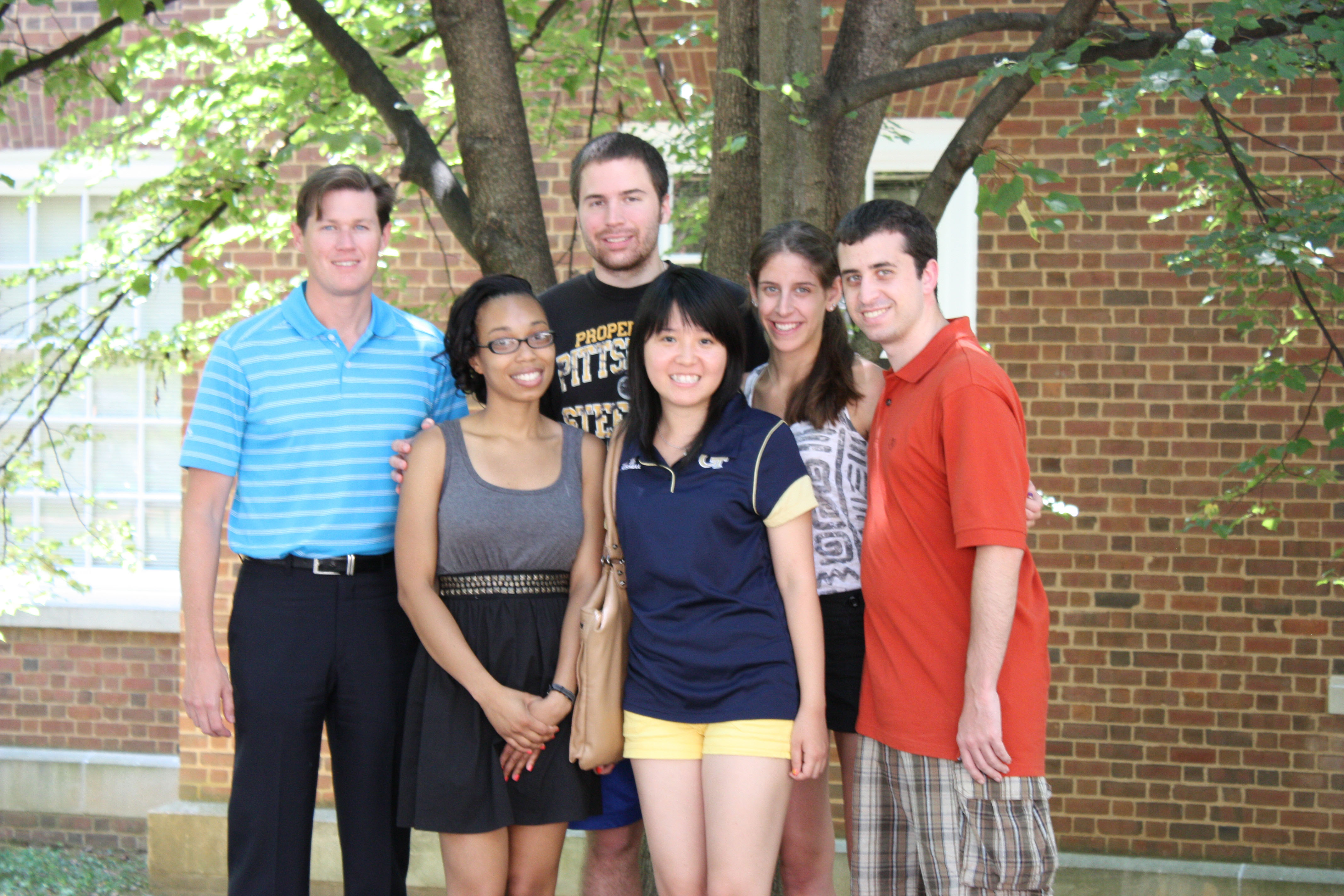The University of Virginia's School of Engineering and Applied Science recently sponsored a summer program to introduce undergraduate students to the world of graduate study.
The Undergraduate Research Internship in Systems Engineering, or URISE, took a small group of rising fourth-year students who attend schools outside of U.Va. and allowed them to see what being a graduate student is like at the University of Virginia.
"The intent is to give them first-hand exposure to research, and we hope the experience will help them develop an interest in research. They come on Grounds, they work with a faculty member over the summer and they work on a specific eight-week engineering effort," said program leader Gregory Gerling, an associate professor of systems and information engineering.
Many students are not exposed to research during their undergraduate career and therefore haven't had opportunities to see if it is something they might enjoy doing, he said.
"It is not always easy to find American students who want to go into graduate school, even when it is paid for," Gerling said. "I think part of the reason is they are exposed to courses as undergraduates but not to research labs. Undergraduates don't realize that there's this second world outside of their classes in which they could be involved and where they could thrive."
Graduate systems and information engineering student Stephen Adams agreed. "I came to U.Va. not really knowing much about research and I just tried to figure that out," he said. "If students can find interesting research projects while they are undergraduates, it will give them a leg up in industry and with graduate school in general."
URISE also seeks to increase the number of minority students who pursue a graduate engineering education. When the program started two years ago, it partnered with a larger program with the National Science Foundation, run by Dr. Marcus Martin, U.Va.'s vice president and chief officer for diversity and equity. Two of the students involved in this year's URISE class are part of the program.
"Most of our URISE students are either a member of a minority or women, who in engineering are often a minority," Gerling said. "We have a sort of dual purpose of encouraging underrepresented populations, giving them exposure to research, getting them excited about research, and in the end, we hope they will consider graduate school here at U.Va."
Along with research, the students also attend seminars. On June 29, a panel of systems and information engineering graduate students gave a presentation on what graduate school at U.Va. is like. Topics covered included the difference between the master's and Ph.D. programs, coursework, research areas, how to choose an adviser, funding, workload, and the always popular topic of social life. URISE students were assured that despite the high expectations of graduate school, they would still have a thriving social life.
"I think this program gives students a good opportunity to do research in their undergrad career, which is something I did not have a chance to do when I was an undergraduate," panel member Barbara Luckett said of URISE. "I think it's a great opportunity for people who might not otherwise be exposed to research to be able to come to a different university and meet different professors and be aware of what graduate school is like there."
URISE student Ariel Mitchell, a rising senior at Virginia Commonwealth University, attended the panel. She is working with associate professor James Lambert to digitize and secure patient information, which would make it possible for information to be in one place and readily available to doctors in the event of injury or illness.
"I'm actually looking toward a career, like trying to do research," she said. "So I'm here to find out more about what I'm interested in, because I'm not sure what I want to do."
Other members of the program are assisting in diabetes research, researching ways to train a doctor to replace a dislocated hip, and tracking sensors on the body. Students this summer come from universities across the country, including the University of Buffalo in New York, the Georgia Institute of Technology, Johns Hopkins University, the University of Florida, VCU and Bennett College.
Gerling hopes to expand the program and gain sustainable funding as he looks toward the program's third year. The URISE cost per student is $5,000, including housing, a research stipend, meals and travel costs, but students attend free of charge.
It's an investment, Gerling said. "We hope the students will choose to return to U.Va. in the future after their experiences this summer."
– by Rebekah Bremer
Media Contact
Article Information
August 3, 2012
/content/urise-program-looks-recruit-students-graduate-engineering-programs

